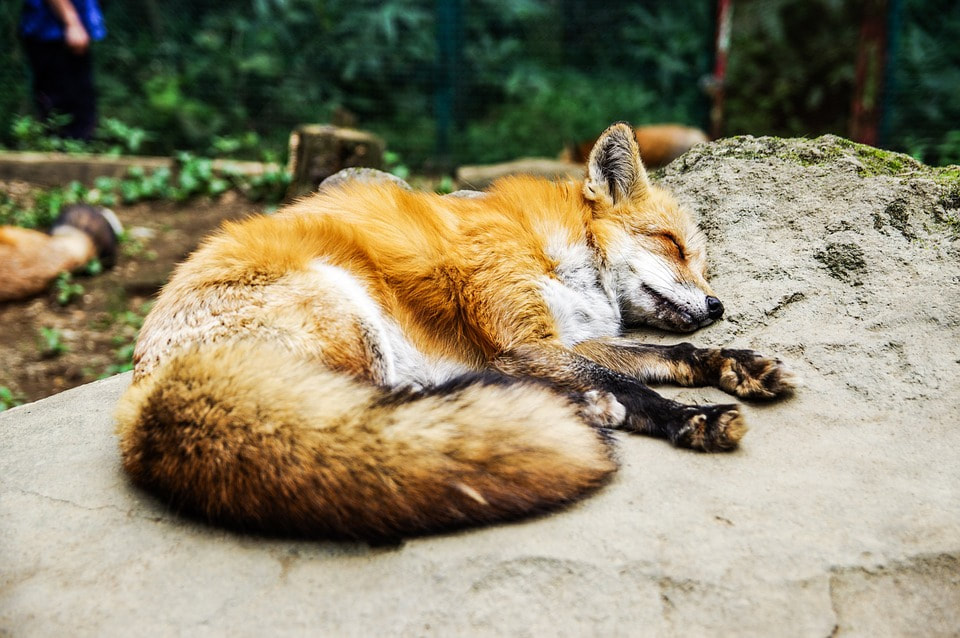598 Foxes Killed By The RSPB In One Year - The Reality Of 'Conservation' In The 21st Century12/2/2020
"Where were the RSPB....?" I've lost count of the number of RSPB members who have contacted me, complaining about the Society's initial response to Natural England's bird kill licences. When I first revealed the shocking statistics behind the bird culls, the natural reaction from many of my blog readers was to contact the RSPB for reassurance. While it seemed obvious for members to turn to their Society for advice, people tell me that they were disappointed with the banal responses they received. The RSPB was hardly reassuring its worried supporters with statements like: "...without knowing the reasons for each license, it is impossible to comment on individual cases, but some of the species that have been listed raise questions..." By the time our petition had reached a quarter of a million signatures, the RSPB were telling one of my readers: "...we are aware of this matter and are trying to find out further detail. This may take some time so I’d ask you to bear with us while we investigate." The Society added that it was "in the process of working with Natural England....on the licencing process", but there were suggestions that the Royal Society for the Protection of Birds should have already known the extent of Natural England's bird killing.... never mind having to 'investigate'. "...As members of the RSPB, shouldn’t they have told us?" Discussion on my blog began to tell a story of growing dissatisfaction with the RSPB, some people were even beginning to question the role of the Society in protecting the nation's bird life, "...it does make you wonder why we have to rely on Jason to tell us this stuff. As members of the RSPB, shouldn’t they have told us?" asked one reader, while another remarked "I am also an RSPB member and cant think why they are not more involved in all this." The RSPB killed nearly 600 foxes in just one year.... Some felt that the Society had been ambivalent over a flawed licensing regime that had gone unchallenged for years. However, the RSPB has been involved in its own killing spree.... As part of its conservation efforts, the RSPB kills thousands of animals and birds each year. The Society is quite open about this, even publishing an annual summary of its own wildlife culling. Yet many of its members seem unaware that RSPB management initiatives involve large scale slaughter of selected wildlife. I took a look at the most recent set of statistics, which were published by the RSPB last July. I have to say that the figures seem shockingly high, even with an understanding of the motives behind the killing (motives with which I personally strongly disagree). In just one year, between September 2017 and August 2018, the Society killed 598 foxes and 800 Crows, on and off its reserves, as part of its work in conserving various threatened species of birds.
RSPB destroying eggs of amber listed Barnacle Geese.... The RSPB also destroyed 322 Canada Goose eggs and 321 Greylag goose eggs (the reason given for this action being 'Air Safeguarding'). They also removed 22 Barnacle Goose nests and destroyed more than 100 eggs of this amber listed species (in the name of 'Tern and Avocet conservation'). In total the Society killed at least 2,719 animals and birds in just one year. "An option based on rigorous scientific research..." One of my readers, worried about fox and crow killing at their local RSPB reserve, was told that "...occasionally, when all other options have proved ineffective, we have had to resort to lethal control to protect some of our most threatened and vulnerable species..." and that "it is an option based on rigorous scientific research..." But surely it is not beyond the means of an organisation as large and resourceful as the RSPB to have found a way to capture and relocate at least some of the animals on its kill list? And surely there are far better ways of controlling birds than wrecking nests and eggs. Am I naïve in suggesting that, rather than destroying the Barnacle goose eggs, they could be removed if necessary, and hatched elsewhere to maintain the population of this threatened species? "These decisions can be controversial...." Of course the RSPB feels that it can justify its action, but as the Society's Global Conservation Director, Martin Harper, admits in his introduction to the figures, "these decisions can be controversial". Something of an understatement perhaps. Controversial indeed... it seems odd, for example, that the Society still advocates the use of Larsen traps to catch and kill corvids, a cruel system that has been outlawed in other countries. In recent years, there has also been criticism of the way the Society chooses to despatch foxes and other mammals. I don't doubt that the RSPB carry out some excellent work, but it does worry me that they exterminate large numbers of animals, and for so long apparently ignored the slaughter of thousands of birds, many of conservation concern, that were being killed under licences issued by Natural England. Public pressure brings change... It took the determined and remarkable efforts of our campaigners, members of the public, to bring about more transparency at Natural England. Our petition, with nearly 360,000 supporters, made huge strides in bringing about change at Natural England. Many think that this should have been the job of the RSPB. The RSPB do seem to be more engaged now, recently telling one of my readers that "we are asking Natural England for greater transparency on their decision-making process......we are recommending that there is clearer data collection and publication of this data which, where necessary, will enable Natural England to be held accountable for the decisions they make." The frustrating part is that I was already saying that more than a year ago, while it had apparently taken the RSPB some time to acknowledge, at least publicly, that there was a problem at all - and to speak out. An increasingly skeptical - and knowledgeable - public Perhaps we need to question the RSPB itself over its extensive killing of native wild animals and birds. 598 foxes in one year? 800 Crows? Doesn't this seem excessive? As more and more of the Society's members discover that protecting a handful of species involves killing thousands of other animals and birds, the RSPB might have to work harder to placate an increasingly skeptical - and knowledgeable - public. Are contrived 'reserves', for selected species, really the answer? How, one wonders, did wildlife survive before it was so carefully managed by the likes of the RSPB and Natural England? Humankind has desecrated habitat and countryside to such an extent that many species simply cannot naturally thrive in this country - that is why we have artificially contrived areas of habitat, 'reserved' for these selected species, often at the expense of other animals. Clearly we have a need for reserves like those run by the RSPB, due to the mess we have made of our countryside - but there is a danger of accepting them as an alternative to proper protection of the environment outside these areas of conservation. Note HS2 and its desecration of ancient woodland, where 'mitigation' measures merely facilitate destruction. Reserves must not become zoos. Species which are currently being exterminated on reserves, may soon themselves be under threat elsewhere. Personally I think we should celebrate - yes and protect - those species that have found a way to thrive in the hostile environments that we have created. That includes foxes and crows. And gulls and geese. Killing them in large numbers, as a means to conserve other species, whose demise was itself caused by misguided human activity, seems like flawed thinking. It's killing, it's exterminating lives of wild animals. In a world on the brink of natural disaster and mass extinctions, is killing more animals really the best solution? The RSPB kill figures for 2017 to 2018 include:- Carrion/Hooded Crow: 800, Fallow Deer: 38, Muntjac Deer: 38, Roe Deer: 333, Red Deer: 547 Sika Deer: 146 Feral Goat: 4 Fox: 598 Grey Squirrel: 97 Great Black-backed Gull: 3 shot, 2 nests removed Lesser Black-backed Gull: 5 shot, 30 nests removed Herring Gull: 2 shot, 19 nests removed Mink:108 * statistics have been collated from RSPB published figures. The author has attempted to reference them as accurately as possible from the source material.
76 Comments
|
If you appreciate what I write about, please consider showing your support by buying me a virtual coffee!
Click the button below! Thanks :) Archives
July 2023
|



 RSS Feed
RSS Feed